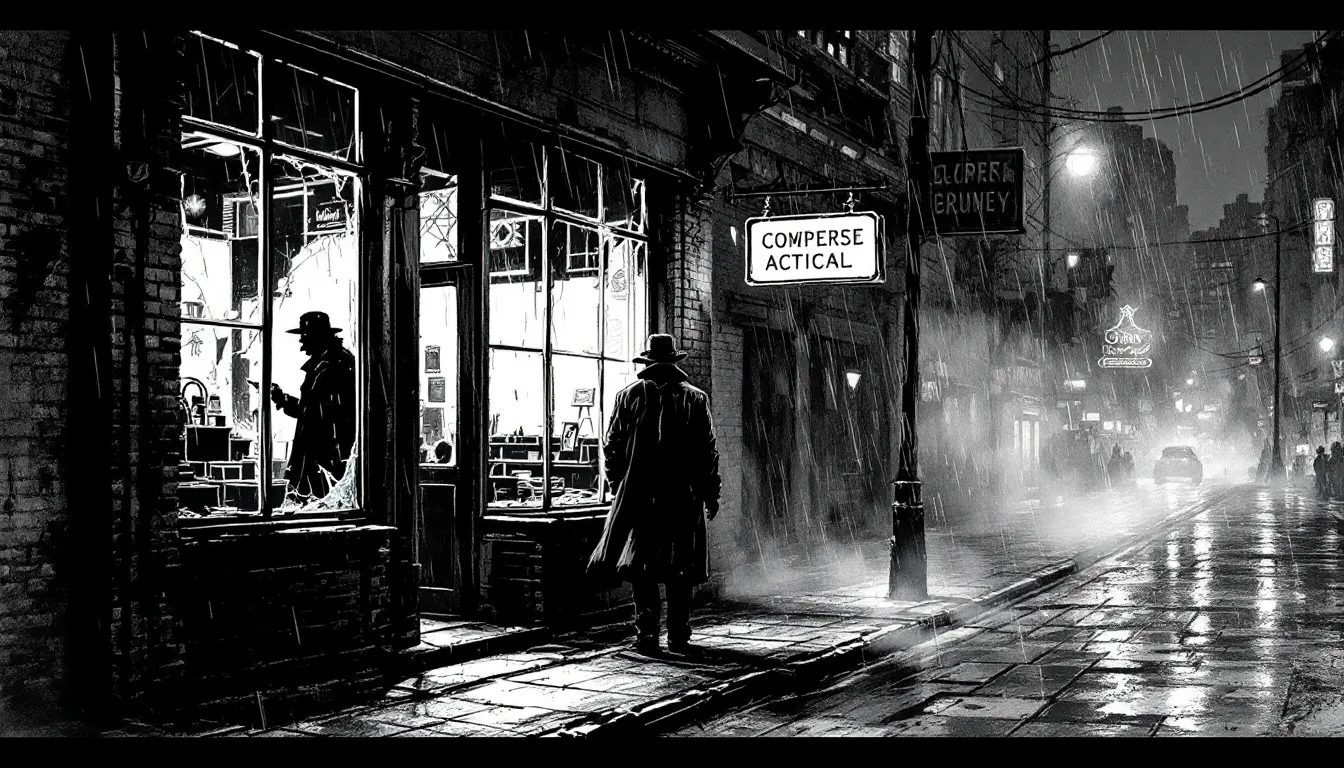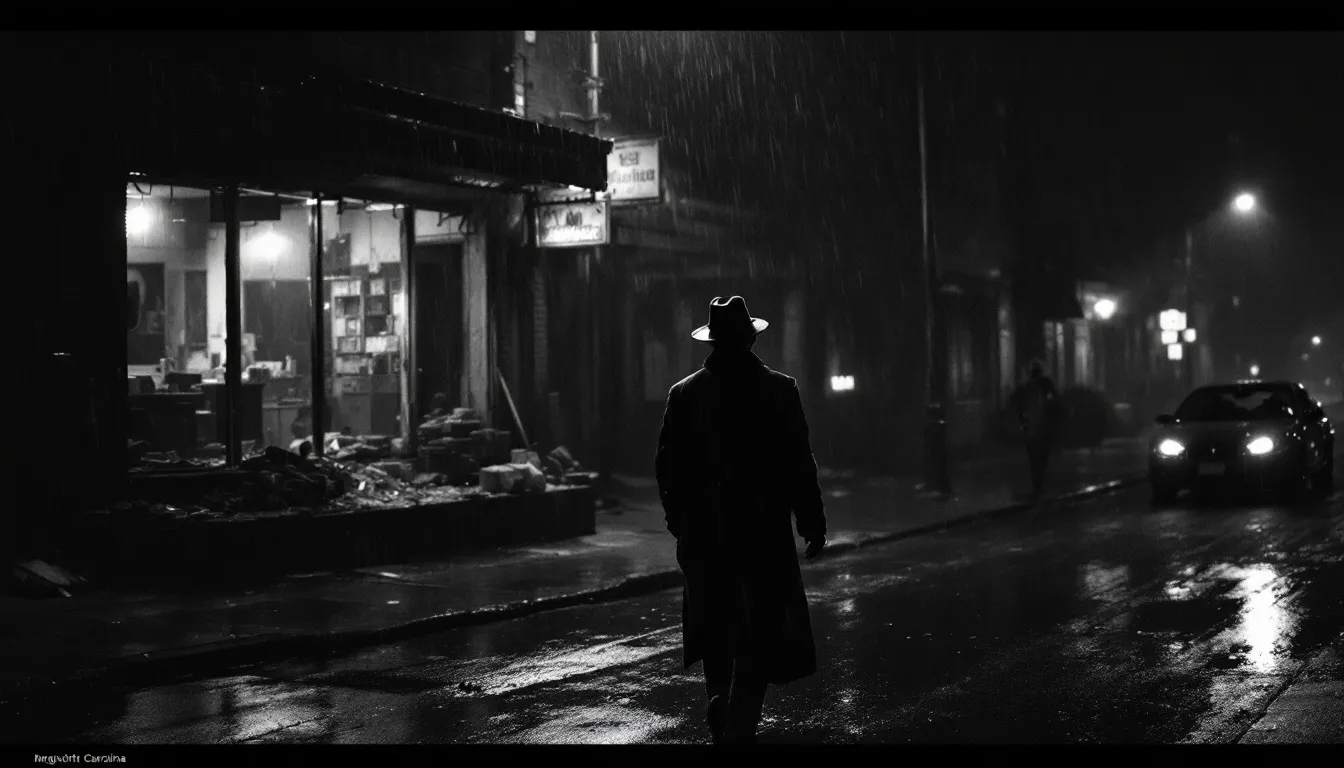Top Durham Shoplifting Lawyer | Expert Criminal Defense | Free Consultation
Are you facing shoplifting charges in Durham? A Durham shoplifting lawyer can provide the legal support you need to navigate this challenging situation. This article will explain how an experienced attorney can help, the potential penalties, and what to expect during your consultation.
Need an experienced Durham shoplifting lawyer? Contact Sandhu Law PLLC at (919) 491-8650 or reach out online for a free consultation. Our dedicated team specializes in shoplifting and expungement cases, providing personalized legal support to help protect your rights and clear your record.
Key Takeaways
Hiring a specialized Durham shoplifting lawyer, like Navi Sandhu, can significantly enhance legal outcomes through personalized advocacy and local legal expertise.
Understanding North Carolina’s shoplifting laws, including definitions, penalties, and defenses is crucial for anyone facing such charges to navigate the legal process effectively.
Deferred Prosecution Agreements and expungement options provide vital opportunities for defendants to mitigate the long-term consequences of shoplifting charges.
Why Hire a Durham Shoplifting Lawyer?

Securing an experienced theft attorney in Durham County, Wake County, can significantly impact your future. A specialized lawyer offers both legal expertise and vital emotional support during challenging times. The legal process can be daunting, and having someone knowledgeable by your side can make all the difference. An arrest for shoplifting is often the initial step in the legal process, and consulting a lawyer immediately after an arrest can help protect your rights and guide you through subsequent legal proceedings. Attorney Navi Sandhu, with his extensive knowledge of local courts, provides a strategic edge in legal defense. His familiarity with the intricacies of the local legal system can significantly influence the outcome of your case, especially when working alongside the district attorney.
Additionally, the firm focuses on personalized advocacy, providing tailored legal strategies that address each client’s unique circumstances. This custom approach enhances the likelihood of a favorable outcome.
Navi Sandhu stands out as both an experienced criminal lawyer and a compassionate advocate who genuinely cares for his clients’ well-being. His commitment to offering emotional support and legal guidance makes him a trusted ally in fighting larceny charges. With Sandhu Law PLLC, you are not just a case number; you are a valued client receiving the best possible defense.
Understanding Shoplifting Charges in North Carolina

Shoplifting, a form of theft, is a serious offense under North Carolina law. It involves willfully concealing or taking merchandise from a retail establishment with the intent to steal. North Carolina's general statutes provide the legal definitions and classifications for shoplifting and related theft offenses. The legal system classifies these actions based on the value of the stolen goods and the specific circumstances of the crime.
Grasping the nuances of shoplifting charges is vital for anyone facing such allegations. This section explores what constitutes shoplifting, the associated penalties, and potential legal defenses, helping you better navigate upcoming legal challenges.
What is Shoplifting?
Under North Carolina law, shoplifting is defined as taking items from a retail store without paying for them. This can involve actions such as manipulating price tags, using devices to conceal items, or simply walking out of the store with unpaid merchandise. The key element here is the intent to steal, which differentiates shoplifting from accidental or unintentional actions.
In North Carolina, shoplifting involving property valued at $1,000 or less may also be referred to as petit larceny, which is classified as a misdemeanor offense.
Shoplifting is considered a form of theft, which is a broader category of crimes involving the unlawful taking of someone else’s property. Whether it’s concealing merchandise, altering price tags, or using deceitful tactics, these actions fall under the umbrella of shoplifting. Grasping these definitions is essential for constructing a strong defense against such charges.
Penalties for Shoplifting in Durham, NC
In North Carolina, the penalties for shoplifting are categorized based on the value of the stolen goods. If the value is $1,000 or less, the offense typically results in misdemeanor charges. For instance, a Class 1 misdemeanor for shoplifting goods valued under $1,000 can lead to a maximum of 120 days in jail, with fines determined at the judge’s discretion. A shoplifting offense may result in a misdemeanor charge depending on the value of the stolen goods and other circumstances, such as the type of property involved.
Concealing merchandise without intent to pay is considered a Class 3 misdemeanor, punishable by up to 20 days in jail and a $200 fine. Understanding these penalties is vital, as they can significantly impact your future. A shoplifting conviction can also affect your employment and housing opportunities, making it crucial to seek legal assistance promptly regarding unlawful concealment of concealed merchandise.
Legal Defenses Against Shoplifting Charges
Common defenses against shoplifting charges include lack of intent and mistaken identity. For instance, if you did not intend to steal or were wrongfully accused, these defenses can prove reasonable doubt in your case. An experienced criminal lawyer can help you navigate the complexities of these charges and create effective defense strategies.
Effective legal defenses can greatly influence the outcome of shoplifting charges. A knowledgeable attorney ensures that all potential defense angles are explored, boosting your chances of a favorable result. This is where Sandhu Law PLLC’s expertise can be pivotal.
Types of Larceny Crimes in North Carolina

In North Carolina, larceny refers to the illegal act of taking someone else’s property. The intention behind this act is to permanently deprive the owner of their property. This broad category includes various types of theft, each with its own legal implications and penalties. Embezzlement is another form of theft crime, involving the misappropriation of property or funds by someone in a position of trust, such as an employee, trustee, or public official. The severity of larceny charges is determined by the value of the stolen property and the circumstances surrounding the theft.
This section examines various types of larceny crimes, such as misdemeanor larceny, felony larceny, and habitual misdemeanor larceny. Each subsection details definitions, penalties, and legal nuances of these charges.
Misdemeanor Larceny Charges
Misdemeanor larceny involves the unlawful taking of property valued at $1,000 or less. These charges are serious but generally carry less severe penalties compared to felony larceny. Under North Carolina law, possession of stolen goods—even if you were not directly involved in the theft—can also result in misdemeanor larceny charges. Legal counsel can often negotiate plea bargains to lower charges or sentences for shoplifting offenses, including petty larceny.
Some thefts may be classified as felony larceny based on the type of stolen item, even if valued under $1,000. An experienced criminal lawyer is vital to navigate these complexities and work towards reducing the charges.
Felony Larceny Charges
Felony larceny in North Carolina is defined as the theft of property valued over $1,000. The classification of larceny as a felony or misdemeanor in North Carolina is primarily determined by the value of the stolen items. Felony larceny convictions can lead to a prison sentence ranging from 4 to 24 months, with an average sentence duration of 5 to 6 months.
Certain theft-related offenses, such as using lead-lined or aluminum-lined bags to conceal merchandise or stealing property above a specific value, can be charged as a Class H felony in North Carolina, which carries significant legal consequences.
Felony larceny includes not only the theft of property valued over $1,000 but can also involve serious felonies such as prior convictions. These grand larceny charge are severe and require a robust legal defense to mitigate the potential consequences.
Habitual Misdemeanor Larceny
Habitual misdemeanor larceny involves repeated offenses that can lead to harsher penalties compared to a first-time offense. For instance:
A second shoplifting charge within three years is classified as a Class 2 misdemeanor.
It is punishable by up to 60 days in jail.
It carries a fine of up to $1,000.
The classification of a second offense as a Class 2 misdemeanor increases the legal consequences, imposing stricter fines and potential jail time. Understanding these nuances is crucial for anyone facing repeated larceny charges.
Consequences of Larceny Convictions

A shoplifting conviction can lead to:
Civil lawsuits from store owners for recovering the value of the stolen item.
Escalation of charges with repeated misdemeanor larceny offenses, potentially resulting in felony classification.
Immediate legal penalties including fines and possible jail time.
A larceny conviction can also negatively affect job prospects, professional licenses, and future loan opportunities, among other factors. If someone is arrested, convicted, and found guilty, these life-changing effects emphasize how a larceny conviction can adversely affect the need for criminal defense lawyers to mitigate serious consequences under criminal laws.
Fraud-related charges, which involve deception or false pretenses, can also lead to serious legal consequences and negatively impact your reputation and future opportunities.
Durham County Court System: What to Expect
Facing larceny charges in Durham County can be overwhelming, especially if you are unfamiliar with the local court system and North Carolina’s criminal laws. The Durham County Court System handles a wide range of offenses, from misdemeanor larceny and petty larceny to felony larceny charges and serious felonies like grand larceny or habitual misdemeanor larceny. Understanding how these cases are processed—and what steps you should take—can make a significant difference in the outcome of your case.
When you are accused of larceny, whether it involves unlawful concealment of merchandise or the alleged theft of property from a retail establishment, your first priority should be to protect your rights. Remaining silent and requesting a free legal consultation with an experienced criminal lawyer is crucial. A knowledgeable attorney can explain the nuances of North Carolina law, help you understand the specific larceny charges you are facing, and guide you through each stage of the court process.
In Durham County, the district attorney’s office is responsible for prosecuting criminal charges, including shoplifting and larceny offenses. The severity of the penalties you face will depend on several factors, such as the value of the stolen property, your prior record level, and whether the offense is classified as a misdemeanor or felony. Felony charges, such as those involving property valued over $1,000 or cases of habitual misdemeanor larceny, carry much harsher consequences than misdemeanor larceny charges. A larceny conviction can result in jail time, fines, community service, and a permanent criminal record that may adversely affect your future opportunities.
The role of the alleged victim—often a retail establishment—can also influence the prosecution’s approach and the evidence presented in court. The prosecutor must prove your guilt beyond a reasonable doubt, and a skilled criminal defense lawyer can challenge the prosecution’s case, negotiate with the district attorney, and explore possible defense strategies tailored to your circumstances.
For some first-time offenders or those facing less severe charges, a deferred prosecution agreement may be available. This option allows you to complete certain requirements, such as community service, in exchange for the eventual dismissal of your charges. However, the terms and eligibility for such agreements are governed by strict criminal laws, and it is essential to fully understand your obligations before accepting any deal.
Navigating the Durham County Court System without experienced legal representation can be risky, especially when facing serious felonies or complex larceny cases. A reputable law office can provide the guidance and advocacy you need, helping you understand your rights, the potential penalties, and the best path forward. If you are facing misdemeanor charges, felony larceny charges, or any other criminal offenses, don’t hesitate to seek a free consultation with a qualified criminal defense lawyer. Taking this step can help you protect your future and work toward the most favorable outcome possible under North Carolina law.
Deferred Prosecution Agreements for Shoplifting
In North Carolina, a Deferred Prosecution Agreement allows a defendant charged with certain offenses to avoid trial by completing probation instead. Key points include:
Successful completion of probation results in the dismissal of charges and immunity from future prosecution for the same offense.
Eligibility for deferred prosecution requires the defendant not to have prior felony convictions.
Eligibility also requires no prior misdemeanors involving moral turpitude.
Key points about deferred prosecution agreements:
If a defendant violates the terms, the prosecutor can reinstitute charges based on the original offense.
The maximum probation period under such an agreement is typically two years.
This agreement can be a lifeline for those facing shoplifting charges, offering a path to avoid a criminal record.
Expungement of Shoplifting Charges
Expungement is a legal process that allows individuals to clear certain criminal charges from their records in North Carolina. Individuals are eligible for expungement if they were accused of crimes resulting in a Dismissal or Not Guilty finding. This process can provide a fresh start, free from the stigma of a criminal record.
Grasping the eligibility criteria and benefits of expungement is essential for anyone with a shoplifting charge. Clearing your record can open new opportunities and remove barriers to employment and housing.
How Sandhu Law PLLC Can Help

Navi Sandhu and his team at Sandhu Law PLLC focus on providing personalized representation to clients facing shoplifting and larceny charges. Clients appreciate Navi Sandhu’s dedication and responsiveness, often describing him as genuinely caring and supportive throughout their legal processes.
With over a decade of experience, Navi Sandhu is known for achieving favorable outcomes for his clients. Having a knowledgeable attorney like Navi Sandhu ensures that clients receive expert defense strategies tailored to their specific cases.
Free Consultation with Sandhu Law PLLC
To schedule a free consultation with Sandhu Law PLLC, you can call (919) 491-8650 or reach out online through their website. Whether you need legal advice or want to discuss your case, Sandhu Law PLLC offers a free consultation to help you get started.
Clients can also schedule consultations online, offering an accessible option. Sandhu Law PLLC provides free legal consultation to discuss legal issues and explore potential defense strategies.
Client Testimonials
Sandhu Law has successfully defended numerous clients against a variety of theft-related charges. Clients describe Navi as kind, experienced, compassionate, and dedicated, highlighting his ability to listen and build effective defenses.
His clients feel informed and supported throughout their legal journey.
Contact Us Today
For immediate legal assistance, clients can contact Sandhu Law PLLC by calling (919) 491-8650 or by submitting an inquiry through their online message form. Sandhu Law PLLC is committed to providing prompt, personalized support to help you navigate your legal challenges with confidence.
If you are facing legal issues, contacting Sandhu Law PLLC can provide the support you need.
Summary
Understanding the complexities of shoplifting and larceny charges is crucial for anyone facing these allegations. From defining what constitutes shoplifting to exploring the potential penalties and legal defenses, this guide provides a comprehensive overview of the legal landscape in North Carolina.
By seeking the assistance of experienced criminal defense lawyers like those at Sandhu Law PLLC, you can navigate these challenges with confidence. Contacting Sandhu Law PLLC for a free consultation can be the first step towards securing a favorable outcome and protecting your future.
Frequently Asked Questions
What is the definition of shoplifting under North Carolina law?
Shoplifting under North Carolina law is defined as the willful concealment or taking of merchandise with the intent to steal it. This encompasses any act of theft involving retail goods.
What are the penalties for misdemeanor larceny in Durham, NC?
In Durham, NC, misdemeanor larceny, involving the unlawful taking of property valued at $1,000 or less, can result in penalties of up to 120 days in jail and fines determined by the judge's discretion.
What is a Deferred Prosecution Agreement?
A Deferred Prosecution Agreement enables a defendant to avoid trial by fulfilling probation requirements, resulting in the dismissal of charges and protection from future prosecution for the same offense. This arrangement serves as a means to hold the defendant accountable while avoiding the burdens of a trial.
How can I expunge a shoplifting charge from my record?
To expunge a shoplifting charge, you must have the charges dismissed or a not guilty finding. Once eligible, you can file a petition for expungement to clear your record.
How can Sandhu Law PLLC help me with my shoplifting case?
Sandhu Law PLLC can assist you with your shoplifting case by offering personalized representation and developing effective defense strategies based on their extensive experience. Their tailored approach ensures that your specific circumstances are thoroughly considered in your defense.